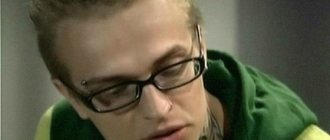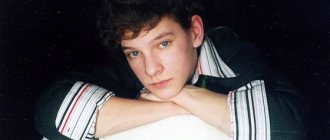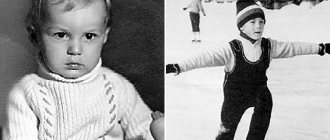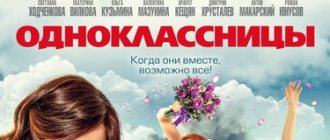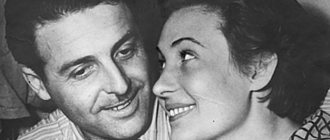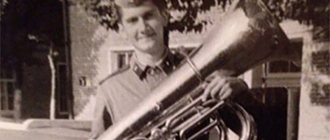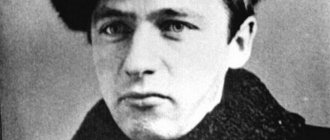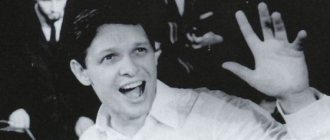Biography of Ilya Varlamov
Ilya Aleksandrovich Varlamov is a photographer, entrepreneur, author of creative public initiatives and the most popular blog zyalt on LiveJournal.
According to him, he organized his life in such a way that he spends most of his time on travel and sports, and only 20 percent on work. At the same time, he always worked exclusively for himself, adhering to the principle of never doing anything that was not interesting to him.
Blogger Ilya Varlamov
Every year he spent about six months traveling, managing to visit more than one and a half hundred countries. He published his impressions and photo reports about his trips on a blog, and combined the most striking of them into the book “Travel Notes,” accompanied by the words of Anatole France that often “one day spent in other places gives more than ten years of life.” Houses".
How I came to LiveJournal
Ilya became a blogger because he “was simply given a camera for his birthday.” From that moment on, his interest in computer graphics faded, and he completely left this field.
Having become interested in photography and starting to take his first photographs, he opened a blog on LiveJournal. The availability of money and free time allowed Ilya to go on his first travels, during which he made reports, but not for a wide audience, but for a close circle. At some point, I got tired of telling the same type of stories to relatives and friends, and Varlamov decided to publish his impressions, sending links to everyone.
The LiveJournal platform was chosen due to the banal lack of alternatives. In 2006, there were no other blogging platforms besides it. The audience then actively commented on the materials, and LJ itself acquired local stars like Artyom Lebedev, Rustem Agadamov, and others.
How I became a political commentator
In 2010-2012 A new crisis has arrived, this time a political one. LiveJournal turned from a platform about everything into a platform where people of opposition and pro-government views clashed in a fierce battle, and the peak of protest activity was the rallies on Bolotnaya.
Varlamov actively became involved in the protest movement, covering and commenting on all important news and events, supporting the opposition agenda, without joining any of the camps. As a result, Ilya is almost the main reporter talking about all the actions of those who disagree.
He still remains in opposition to the current government. Although during the same period, details surfaced about joint work with pro-Kremlin youth movements. Varlamov collaborated with the state corporation Rostec, heading the socio-political media outlet Reedus.
Be sure to read it! Scandalous pranker Edward Beale: how much you can earn from provocations and obscenities ❣️
When protest activity began to decline, Varlamov began publishing urban reviews. In 2010, the blog became a full-fledged source of income, earning 300,000 rubles from advertising. In 2012, after a trip to Copenhagen, Ilya brought back a number of notes that caused a strong response. Having probed the interests of his readers, he plunged headlong into the topic of urbanism.
What political views does Varlamov profess in your opinion?
Five minutes to the mayor
It’s a funny situation when Varlamov almost became the mayor of Omsk. During the primaries, he was offered (without far-reaching intentions) to register as a civilian candidate for the elections. In order to attract attention to the elections and “for fun,” Ilya agreed.
In the end, he won without doing anything to advance himself. However, later, having arrived in Omsk after winning the qualifying round and organizing the headquarters, it was not possible to collect the required number of votes for further participation on the spot.
In 2018, Ilya again tried to go into politics, publishing his program for the Moscow mayoral elections, but a month later he left the race.
Childhood of Ilya Varlamov
Ilya was born in the Russian capital on January 7, 1984. His parents are graduates of the Moscow Aviation Institute. My father worked as a logistics specialist, and my mother even participated in the design of the Buran spacecraft. As a child, he loved to draw, so after graduating from school in 2000, on the advice of his family, he entered an architectural university.
Varlamov Ilya Alexandrovich
While studying at the institute, Ilya began to engage in entrepreneurial activities already in his 3rd year. Together with Artem Gorbachev, he organized an architectural studio for design and 3D visualization of objects. The first major order of young businessmen was the presentation of the skyscrapers of the Alye Parusa residential complex of the DON-Stroy Group of Companies in a form convenient for visual analysis.
Business projects of Ilya Varlamov
Subsequently, the studio grew into the advertising and development company iCube Creative Group, specializing in visualization, computer graphics and animation, with annual revenue of about three million dollars.
The success of this full-cycle enterprise in the field of real estate was also evidenced by the size of its office of 500 square meters, located in the center of Moscow, and a considerable staff of 50 people. In partnership with Dmitry Chistoprudov, in 2009, Ilya organized the photo agency “28-300”, which got its name from the focal length parameters of a Canon lens. The excellent range and versatility of the device were intended to symbolize the high level and wide capabilities of its founders as specialists. The agency was engaged in the sale of high-quality advertising photographs of shopping centers, factories and other architectural objects.
Ilya Varlamov: rating of Russian cities
In 2011, Varlamov began publishing the online media “Reedus”, the so-called public journalism agency. It included two news sections. In the first, news materials prepared by editorial correspondents were published, in the second, articles uploaded by Internet users.
Ilya also became the founder of the “Glass Bolt” anti-award, awarded for stupid, from the point of view of the Internet audience, actions of the authorities in the field of urban improvement. The first celebration of the anti-prize laureates took place with the support of Reedus on the territory of the Design exhibition complex on December 15, 2011.
The following year, the blogger won the online primaries for the post of mayor of Omsk and applied to participate in the election campaign. However, Ilya’s campaign failed to collect the required number of voter signatures in his support, so he withdrew his candidacy. Ilya later explained the decision to compete for this post with the desire to stir up passive Omsk residents, whose turnout in the elections for the head of the administration was very low - about 13 percent.
Ilya Varlamov in Africa with Sergei Dolya In the same year, 2012, Varlamov left the Reedus Internet project, after which the editorial staff of the agency was completely renewed.
Among Ilya’s undertakings of that period was the establishment, together with Maxim Katz, of the Urban Projects Foundation, designed to study existing problems and improve the appearance of cities based on urban studies.
Biography of an entrepreneur
Varlamov Ilya Aleksandrovich was born in Moscow on January 7, 1984. His parents graduated from the Moscow Aviation Institute and occupied a fairly high position in society. It was the father and mother who advised their son to study to become an architect, since the boy loved to draw since childhood.
During his student years, Varlamov began to engage in entrepreneurial activities. Together with his friend Artyom Gorbachev, he opened a studio for design and visualization of various objects in 3D. The young students were very lucky - they were entrusted with a lucrative order to create a project for the Scarlet Sails residential complex.
Successful business projects
After some time, the studio grew into the iCube CreativeGroup company, which could already boast annual revenue of about 3 million rubles. It is worth noting that in the first year of its existence the studio had a turnover of only 50 thousand dollars. Later, Varlamov’s company moved to a huge modern office, and the staff was replenished with 50 new employees. The list of services includes:
- computer graphics;
- visualization;
- animation.
In 2009, Varlamov founded his next significant project - the photo agency “28−300”. Dmitry Chistoprudov became Ilya’s partner. The agency received its unique name from the lens parameters of Canon cameras.
The photo studio was mainly engaged in the production and sale of high-quality photographs of various architectural objects:
- factories;
- shopping centers;
- residential complexes.
Two years later, Ilya began publishing the Reedus publication in an online format. It should become a public service journalism agency. News published on the site is divided into two main categories:
- articles written by professional journalists;
- publications by Internet users.
But already in 2012, Varlamov left this project, after which the composition of Reedus employees completely changed.
The entrepreneur is the founder of the Glass Bolt anti-prize. This award is given to the authorities for the most stupid attempts to improve Russian cities. Varlamov's numerous travels around Russia allow him to make informed comments to city officials.
In 2012, Ilya tried to get the post of mayor of Omsk. This happened after he won the online primaries. But Varlamov’s headquarters failed to collect the required number of votes in his support, so he was forced to withdraw his candidacy. The entrepreneur said that he wanted to become mayor in order to somehow stir up the townspeople, who showed a very low turnout in the elections.
Another of his undertakings of that period was the Urban Projects Foundation, which was organized jointly with Maxim Katz to improve the appearance of Russian cities. In 2013, Ilya co-founded the Varlamov company. bike, which distributes Peugeot products in Russia.
Livejournal
Varlamov has his own live journal, which is called Zyalt Livejournal (Zyalt/Zyalt Livejournal). He is also quite actively developing accounts on the social networks Twitter, Facebook, Youtube and VKontakte, in which he shares the latest news from his life with subscribers. Ilya is especially active on Twitter; the number of his posts already exceeds 100 thousand.
In his LiveJournal blog, Varlamov shares various relevant information with his subscribers, for example, talks about the current political situation in the country, riots and other problems. In 2010, Ilya became one of the few journalists who was entrusted to accompany Vladimir Putin during his trip around the country. In his posts, Varlamov spoke openly about what he was able to see during these trips.
Later information appeared that Ilya was paid for his posts. In particular, for a publication about Vladimir Putin’s support for running for president for the third time or for a statement about Navalny, who, according to him, committed political suicide.
Varlamov often reviews various Russian cities in a “good/bad” format, that is, the articles discuss the advantages and disadvantages of a particular locality . He backs up all his statements with visual evidence in the form of photographs. The most famous publications were about Nizhny Novgorod and Veliky Novgorod.
The blogger also wrote a lot about St. Petersburg and its Parnassus region. According to Ilya, it is not possible to live in such a place. Varlamov also wrote about a live crocodile that was found in a house in the south of St. Petersburg, and about elections under the supervision of “polite people” at polling stations. The blogger's articles are designed to make cities safer and save thousands of lives that are in danger due to the stupidity of city authorities.
Every year Ilya publishes ratings of Russian cities, which are called “Where is it good to live in Rus'?”
Varlamov does not consider himself a blogger and even has a negative attitude towards this term. He especially doesn’t like the fact that the media often call him “the president’s personal blogger.” Ilya calls himself a journalist.
Varlamov sells advertising on his blog through, as he is its co-founder. For example, he wrote an advertising publication about Tochka Bank. Previously, he was accused of publishing advertising posts without the appropriate tag, but he himself denies the presence of this on his page.
With the decline in the popularity of LiveJournal, the blog expanded into an author's media and is based on a separate domain, Make Russia Warm Again. Previously, the blog was called “Photo Travel and More.”
They say that in Russia Varlamov was the first to start making life news reports using drones. It was on his blog that the famous photo appeared, showing the massive protest on Bolotnaya Square against election fraud.
Varlamov travels not only around Russia, but also around the world . He also shares his photo reports on his personal blog. In his own words, in 2020 he managed to visit 37 different countries, and a year later he even increased his result.
In 2020, during a trip to Stavropol, Varlamov was attacked. First, at the airport they doused him with green paint, sprinkled him with flour and hit him several times, and then this happened again in the city itself. Ilya demanded that the perpetrators be punished and a criminal case initiated. Later, the city police reported that they were conducting an investigation and had already identified the participants.
LiveJournal of Ilya Varlamov zyalt
The blog that Ilya kept became for readers a source of the most current information (for example, about political events), offered with an illustration of what was happening. Therefore, it is quite understandable that about 70 thousand representatives of the Internet community subscribed to it (bringing the blog to the first line of the rating in terms of the number of subscribers), and monthly traffic reached 4 million users.
Ilya Varlamov's blog is very popular
In particular, Varlamov covered online the riots on Manezhnaya Square in 2010, clashes between people of Slavic and Caucasian appearance near the Evropeisky shopping center, and made reports from the “Days of Wrath” and “Dissent Marches.”
Ilya’s information in LiveJournal about rising ticket prices in Tokyo and the events on the Maidan in Kyiv also found a great response among bloggers.
Participation in the blogosphere
The blog, which Ilya has maintained on LiveJournal since July 2006 under the nickname varlamov.ru (Zyalt), is one of the first places in the user rating. It pleases readers with the latest and most relevant information, flavored with illustrations and numerous photos of what is happening. Therefore, blog traffic reaches about several million per month, Ilya has a large army of subscribers.
Varlamov positions himself as a supporter of the liberal opposition and supports their movements and actions. Our hero actively and quite widely covers various political events on his blog, for example, the clashes on Manezhnaya Square in Moscow in 2010 or the riots on the Maidan in the center of Kyiv in 2014.
Ilya Aleksandrovich Varlamov considers himself an urbanist, and therefore takes a very critical and active approach to landscaping and beautification of Russian cities, which he often covers in his blog. In particular, the young architect touches on the sore subject of parking, familiar to most residents of big cities, as well as the lack of landscaping and the ubiquitous abundance of advertising, which spoils the appearance of megacities. He criticizes the construction of multi-storey buildings even in small towns, believing that this will inevitably lead to crime in anthill areas. Ilya actively supports the development of public transport and hates underground passages. So the lion's share of the blog is devoted to the state of many Russian cities and the problems of their residents.
Ilya Varlamov and Vladimir Putin
In 2010, Ilya, together with the government press service, accompanied Vladimir Putin on several short trips around the country.
Then, in his blog, he described the circumstances of the trips, the atmosphere, and the rhythm of the activities of journalists covering the work of the current president of the country, calling such cooperation a kind of experiment. Ilya Varlamov in Arkhangelsk: People live here One of the blogger’s assignments was a report after a joint flight to the Northern Capital. The following year, he participated in Putin’s travels to Yuzhno-Sakhalinsk, Seliger, where the All-Russian youth forum “Ours” was held, and published reports in his online diary. By the way, Varlamov admitted in one of his interviews that he always had a negative attitude towards the term “blogger” (considering himself a journalist), including that he was disgusted by the fact that in the media he was called Putin’s personal blogger.
↑ Biography
After graduating from the court chapel in 1819, Alexander Egorovich became a singing teacher in the Orthodox Church in The Hague. This place can be called the beginning of his career. Varlamov begins to work as a conductor, singer and guitarist. Four years later he returns to St. Petersburg, where he finds work in the theater as a singing teacher.
In 1829 he managed to get a job as a teacher in the court chapel. In 1832 he moved to Moscow. Thanks to his merits, he receives a position as assistant bandmaster at the imperial theater. Alexander quickly enters social life, where he becomes close to many famous people who influenced his work. Among them, biographers highlight A.N. Verstakova, M.S. Shchepkina, P.S. Mochalov and N.G. Tsyganova.
In 1833, all the attention of the elite was directed to the composer, since it was then that he released his first collection of romances. Over the next two years he was the publisher of The Aeolian Harp. This periodical published new musical works not only by Varlamov himself, but also by other popular composers of his contemporaries.
In 1840, he was the first to write and publish a pedagogical manual on singing. In “The Complete School of Singing,” he outlined his views and teaching methods. In 1843, he retired and left his position as “composer of music” at the imperial theater.
The last three years of his life he lived in St. Petersburg. Due to severe material deprivations that haunted the composer throughout his life, his health was severely undermined. Alexander dies of tuberculosis in 1848.
Personal life of Ilya Varlamov
Journalist Ilya Varlamov is married, his wife’s name is Lyubov. She is also an architect by training and came to Moscow from Izhevsk. She was able to build her career in design and architecture and now runs the company iCube.
Ilya Varlamov and his wife Lyubov
The couple are raising a common daughter, Elena, and a son from Lyubov’s first marriage. He really refuses to discuss family-related topics in interviews.
Ilya Varlamov and his family: wife and children
Ilya has a number of awards to his name, including the Grand Prix of the Silver Camera 2009-2010 photo competition, recognition as the blogger of the year in the ROTOR competition (2011), and victory in the Best Photos of Russia competition (2012).
Ilya Varlamov and scandals
As it turned out after domestic hackers Anonymous hacked the mailboxes of Vasily Yakemenko, head of the Russian State Committee for Youth Affairs, and Kristina Potupchik, his press secretary, Varlamov was among the pro-Kremlin bought bloggers who were paid by the authorities for publishing certain posts in their online diaries. In particular, for a post about Putin’s support for running as a presidential candidate for the third time and about his presence at the MAKS-2011 air show, Ilya allegedly received a reward of 400 thousand rubles.
Ilya Varlamov was called a pro-Kremlin blogger
Evidence of Varlamov’s alleged corruption was also made public by his colleague at Gosnikolay, who suspected Ilya of working not only for the Kremlin, but also for the West. He found in the blogger’s remark “Who is seizing Crimea” an instruction regarding the coverage of ongoing events containing the word “add”, and concluded that this was an assignment from foreign customers. Ilya Varlamov in Ufa: conflict with the police Rumors about Varlamov’s allegedly unconventional sexual orientation and his close, more than friendly, relationship with Maxim Katz, his business partner, were also discussed on the Internet.
Ilya Varlamov today
Being an active promoter of bicycles, since 2013 Varlamov became a co-founder of the company Varlamov.bike, which exclusively distributes Peugeot in the Russian Federation.
Among his projects is the R&D Group for the creation of software modules for 3D Max (modeling, rendering in the production of films and games) and “Country Without Stupidity,” which demonstrates the possibilities of combating violations of the rights and freedoms of citizens.
Ilya Varlamov closed the blog on livejournal
In the summer of 2020, Varlamov announced the transition of the Zyalt blog on LiveJournal to a media format with the domain name Varlamov.ru. Reformatting, as Ilya explained in one of his interviews, will allow the audience to become acquainted not only with his opinion about a particular event, but also with the statements of others. However, in contrast to large mass media, where a whole range of different views and judgments are given, only with those that Ilya himself considers important.
[edit] Creativity
The significance of A. E. Varlamov’s work speaks for itself: his works continue to live on in the performances of subsequent generations.
Musicologist and composer B. Asafiev characterizes Varlamov’s style as follows: “Varlamov’s main property is “singing”: not a single tone left to chance; the melody clings to smooth links-intervals so that the ear always feels relief and plasticity in this coherent, but unrelated movement of the golom. Each step is “lovingly” vocally “sung” by repetition, or by a reminder at a distance, by variation, or even by surrounding close intervals - “prefixes”..."
[15].
[edit] Romances
Varlamov is one of the greatest masters of vocal lyricism of the 1st half of the 19th century.
The main area of Varlamov’s creativity is romances and songs[6]. In total, he created more than 200 romances and songs[3][16] based on poems by Russian poets Mikhail Lermontov, A.V. Koltsov, N.G. Tsyganov, Alexey Pleshcheev, Afanasy Fet, Nikolai Grekov and others and translations from I.V. Goethe, G. Heine, P. Beranger[4].
The style of Varlamov’s vocal works is close to the genre of urban everyday romance, and therefore they are often perceived as part of Russian musical folklore, that is, they are taken for folk songs, the authorship of which has been lost and which people sing in their own way, replacing some textual and musical ones. phrases in your own way.
Among the romances (in alphabetical order):
|
|
[edit] Folk songs
A considerable part of the composer’s creative activity was occupied by the processing of Russian and Ukrainian folk melodies. Composer Alexander Lvovich Gurilev became his associate in this area.
After the death of A.E. Varlamov, A. Gurilev published a collection of arrangements of folk songs, calling it “Musical collection in memory of A.E. Varlamov,” 1851[20].
Arrangements of folk songs
:
|
|
[edit] Music for performances
A. Varlamov.
Ophelia's Song from the tragedy "Hamlet" (1837). Spanish Nina Belousova, piano Tamila Shaikevich A. Varlamov. Song of Esmeralda. Spanish Nadezhda Partala While working in the Moscow Imperial Troupe, the composer composed music for performances - both musical and dramatic (where at that time musical fragments were widely used).
Among the works for the theater
:
— to dramatic performances
:
- “Roslavlev, or the Russians in 1812” (1832 - together with A. N. Verstovsky; drama by A. Shakhovsky based on the novel by M. N. Zagoskin), premiere: October 14, 1832, Bolshoi Theater, benefit performance by N. V. Repina
- “The Bigamist, or the Volga Robbers” by A. Shakhovsky (1833),
- “Murom Forests, or the Ataman’s Choice” based on the story by A. F. Veltman (premiere: Bolshoi Theater, October 26, 1834[21] at a benefit performance of dancer T. I. Glushkovskaya)
- “Bobelina, Heroine of Greece,” interlude-divertimento in act 1 (premiere January 25, 1835 at the Bolshoi Theater).
- “Ermak”, tragedy by A. S. Khomyakov (1835)
- “Prince Silver, or Fatherland and Love” based on the story “Raids” by A. Bestuzhev-Marlinsky;
- “Hamlet” (1837 - Shakespeare’s play translated by N. A. Polevoy; in the role of Hamlet - P. S. Mochalov; V. Belinsky, who visited this performance 7 times, enthusiastically wrote about the song of the mad Ophelia (actress Nadezhda Repina); later, in 1842, “Ophelia’s Song” was published as a separate edition and, having become an independent musical work[22], was included in the repertoire of various singers; V. V. Samoilova became famous with her performance[2])
- “Esmeralda, or the Four Kinds of Love” based on the novel “Notre Dame in Paris” by V. Hugo (premiere: Bolshoi Theater, January 14, 1838; literary adaptation of V. A. Karatygin’s play by C. Birch-Pfeiffer “The Bell Ringer of Notre Dame” )
- “Bulat-Temir, the Tatar hero, or the Battle of the Don” by V. R. Zotov (premiere: Bolshoi Theater, April 24, 1839)
- “Maiko” (N. Beklemisheva, 1841)
— to ballets
:
- “The Fun of the Sultan, or the Slave Seller” (1834, Bolshoi Theater, choreographer F. Gyullen-Sor; music preserved in fragments[7]),
- “The Cunning Boy and the Ogre” (based on the fairy tale “Tom Thumb” by Charles Perrault; 1837, Bolshoi Theater; with the addition of music by A. S. Guryanov, choreographer F. Gyullen-Sor[7]); the ballet was staged many years later under the title “Seven Brothers”[23].
— for concerts
— music of choirs, vocal ensembles, etc.
